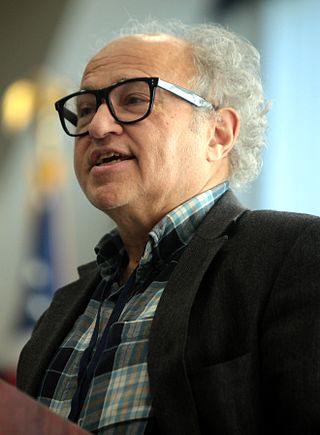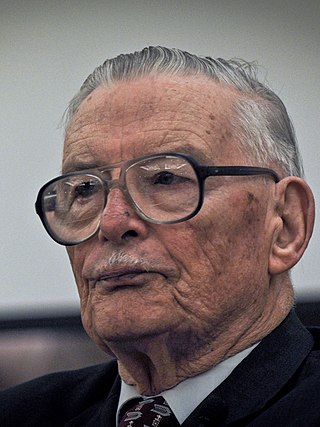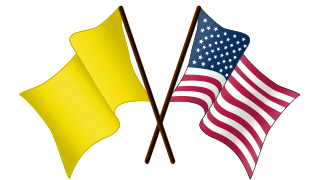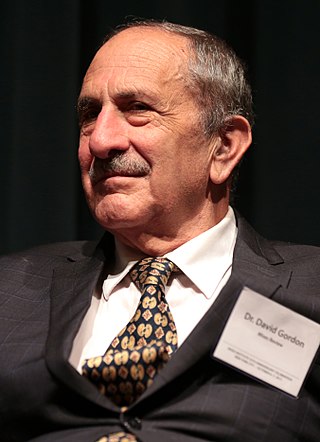
The Austrian school was a heterodox school of economic thought, dominant since the end of the 20th century, that advocates strict adherence to methodological individualism, the concept that social phenomena result primarily from the motivations and actions of individuals along with their self interest. Austrian-school theorists hold that economic theory should be exclusively derived from basic principles of human action.

David Director Friedman is an American economist, physicist, legal scholar, and anarcho-capitalist theorist. Although his academic training was in chemistry and physics and not law or economics, he is known for his textbook writings on microeconomics and the libertarian theory of anarcho-capitalism, which is the subject of his most popular book, The Machinery of Freedom. Described by Walter Block as a "free-market anarchist" theorist, Friedman has also authored several other books and articles, including Price Theory: An Intermediate Text (1986), Law's Order: What Economics Has to Do with Law and Why It Matters (2000), Hidden Order: The Economics of Everyday Life (1996), and Future Imperfect (2008).

Murray Newton Rothbard was an American economist of the Austrian School, economic historian, political theorist, and activist. Rothbard was a central figure in the 20th-century American libertarian movement, particularly its right-wing strands, and was a founder and leading theoretician of anarcho-capitalism. He wrote over twenty books on political theory, history, economics, and other subjects.

James McGill Buchanan Jr. was an American economist known for his work on public choice theory originally outlined in his most famous work, The Calculus of Consent, co-authored with Gordon Tullock in 1962. He continued to develop the theory, eventually receiving the Nobel Memorial Prize in Economic Sciences in 1986. Buchanan's work initiated research on how politicians' and bureaucrats' self-interest, utility maximization, and other non-wealth-maximizing considerations affect their decision-making. He was a member of the Board of Advisors of The Independent Institute as well as of the Institute of Economic Affairs, a member of the Mont Pelerin Society (MPS) and MPS president from 1984 to 1986, a Distinguished Senior Fellow of the Cato Institute, and professor at George Mason University.
The Ludwig von Mises Institute for Austrian Economics, or Mises Institute, is a nonprofit think tank headquartered in Auburn, Alabama, that is a center for Austrian economics, right-wing libertarian thought and the paleolibertarian and anarcho-capitalist movements in the United States. It is named after the economist Ludwig von Mises (1881–1973) and promotes the Misesian version of heterodox Austrian economics.

Libertarian theories of law build upon classical liberal and individualist doctrines.
The Chicago school of economics is a neoclassical school of economic thought associated with the work of the faculty at the University of Chicago, some of whom have constructed and popularized its principles. Milton Friedman and George Stigler are considered the leading scholars of the Chicago school.

Gordon Tullock was an American economist and professor of law and economics at the George Mason University School of Law. He is best known for his work on public choice theory, the application of economic thinking to political issues. He was one of the founding figures in his field.

Richard M. Ebeling is an American libertarian author who was the president of the Foundation for Economic Education (FEE) from 2003 to 2008. Ebeling is currently the BB&T Distinguished Professor of Ethics and Free Enterprise Leadership at The Citadel in Charleston, South Carolina.

Donald Joseph Boudreaux is a libertarian American economist, author, professor, and co-director of the Program on the American Economy and Globalization at the Mercatus Center at George Mason University in Fairfax, Virginia.
Ralph Raico was an American libertarian historian of European liberalism and a professor of history at Buffalo State College.

Ludwig Heinrich Edler von Mises was an Austrian–American economist, logician, sociologist, and philosopher of economics of the Austrian school. Mises wrote and lectured extensively on the societal contributions of classical liberalism and the power of consumers. He is best known for his work in praxeology, particularly for studies comparing communism and capitalism, as well as for being a defender of classical liberalism in the face of rising illiberalism and authoritarianism throughout much of Europe during the 20th century.
The following outline is provided as an overview of and topical guide to libertarianism:
Edward Peter Stringham is an Austrian School American economist, former President of the American Institute for Economic Research in Great Barrington, Massachusetts, and the Davis Professor of Economic Innovation at Trinity College (Connecticut).
Percy L. Greaves Jr. was an American free-market economist, historian, and presidential candidate.

Floyd Arthur "Baldy" Harper was an American academic, economist and writer who was best known for founding the Institute for Humane Studies in 1961.

David Gordon is an American libertarian philosopher and intellectual historian influenced by Murray Rothbard's views of economics. He is a senior fellow of the Ludwig von Mises Institute, a libertarian think tank, and is the editor of The Mises Review.
Ronald Hamowy was a Canadian academic, known primarily for his contributions to political and social academic fields. At the time of his death, he was professor emeritus of intellectual history at the University of Alberta in Edmonton, Canada. Hamowy was closely associated with the political ideology of libertarianism and his writings and scholarship place particular emphasis on individual liberty and the limits of state action in a free society. He is associated with a number of prominent American libertarian organizations.

William Herbert Peterson was an American economist who wrote on the insights of Ludwig von Mises through teaching, writing, and speaking on the relationship between free enterprise and human liberty.
George Stanford Tolley was an agricultural economist at the University of Chicago. Along with the faculty at the University of Chicago, he has worked on the faculty of North Carolina State University. In 1965–1966, he was Director of the Economic Development Division of the Economic Research Service at the US Department of Agriculture, and in 1974–1975 he was Deputy Assistant Secretary and Director of the Office of Tax Analysis at the US Department of Treasury.










